NCKU Expands Semiconductor Talent Pool to India, Signs Agreement with IITs
Written& Image credit to AISSM.
NCKU is focusing on international talent expansion by collaborating with top Indian Institutes of Technology (IITs). Led by the NCKU Academy of Innovative Semiconductor and Sustainable Manufacturing (AISSM), a delegation visited Chennai and Gandhinagar, signing agreements with IIT Madras and IIT Gandhinagar. This collaboration aims to leverage the technological strengths of both Taiwan and India through faculty exchanges, student exchanges, and short-term courses, enhancing the cooperation in semiconductor talent development.
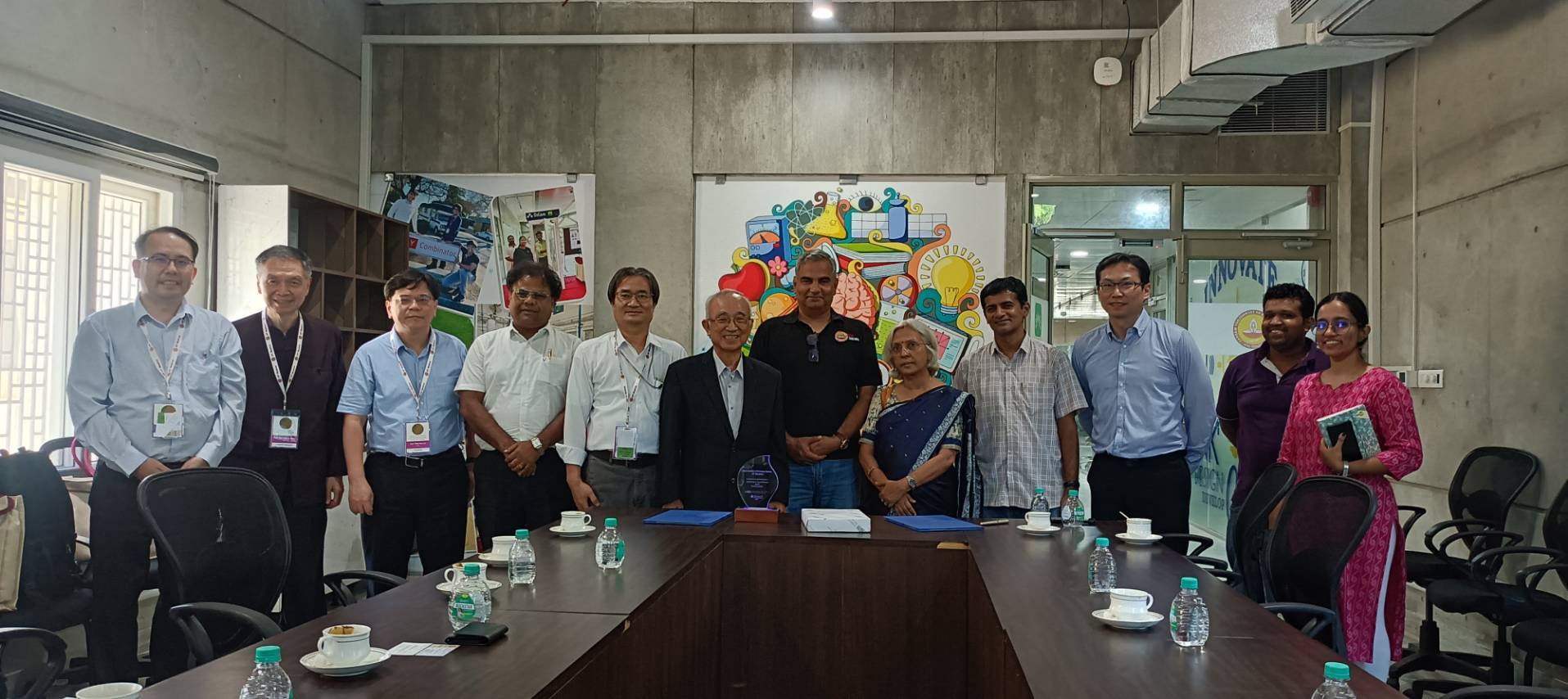
IIT Madras Global Engagement Dean and Electrical Engineering Professors (5th from the right, 3rd from the right is an NCKU professor) with the NCKU delegation at the Shankar Innovation Hub.
India, now the world’s most populous country, is emerging as a new global power, closely linked to its advanced higher education system. IIT Madras, ranked first in India, has established a dual master’s degree program in semiconductors with Purdue University. On October 21, Prof. Raghunathan Rengaswamy, Dean of Global Engagement at IIT Madras, hosted a delegation led by Dean Su, Yan-Kuin of NCKU AISSM. The signed memorandum of understanding will facilitate student exchanges and encourage research collaborations, with students visiting Taiwan for intensive short-term courses. Dean Su highlighted the global recognition of IITs’ research achievements and student quality, while NCKU offers a complete semiconductor technology supply chain, led by TSMC. The collaboration aims to support the semiconductor industry development in both countries through technical forums, short-term lectures, and research exchanges.
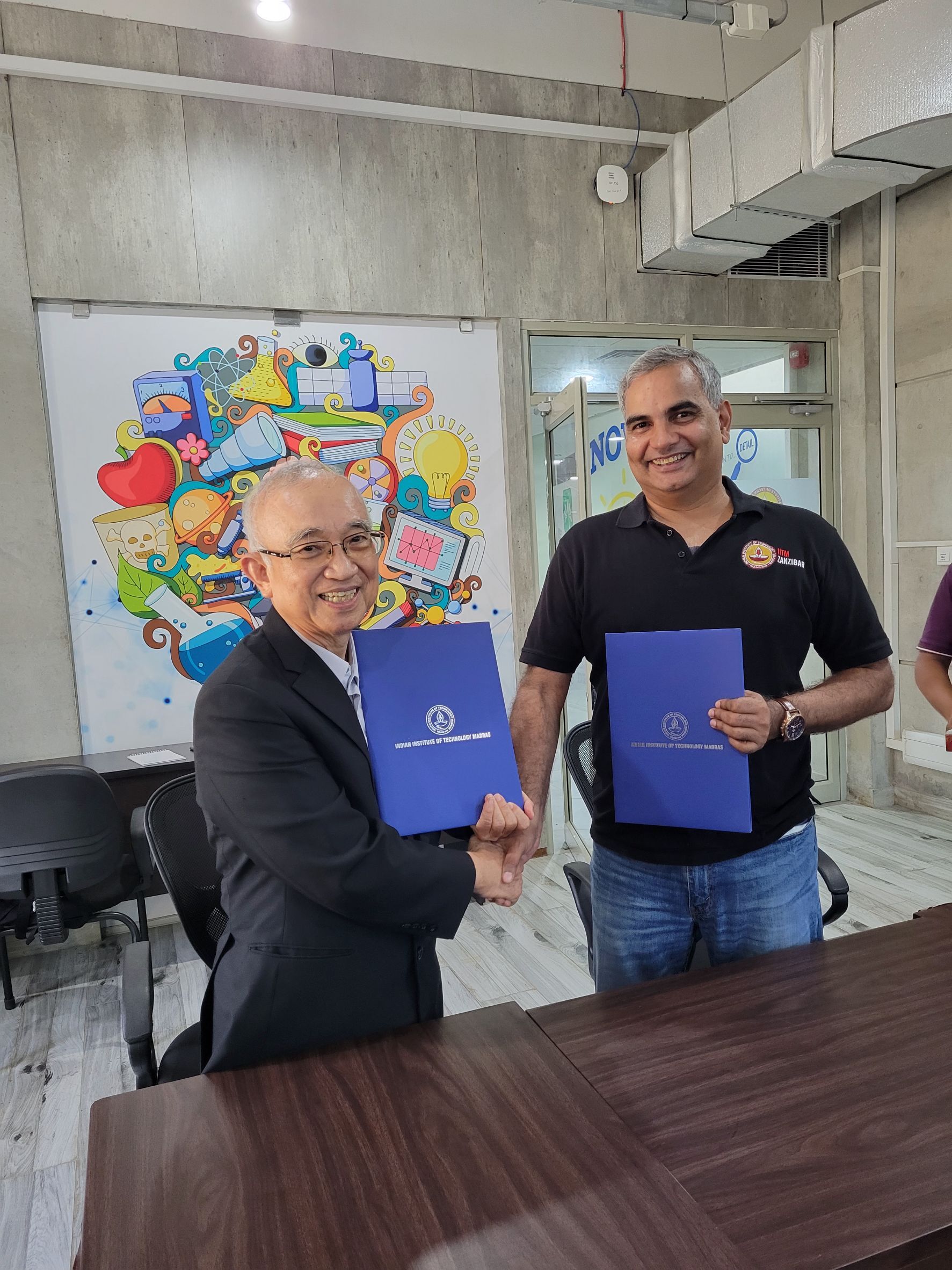
Dean Su, Yan-Kuin (left) and Prof. Raghunathan Rengaswamy, Dean of Global Engagement of IIT Madras, exchange contracts, marking the first collaboration between NCKU and IIT Madras.
The NCKU delegation also visited IIT Gandhinagar on October 23, signing a memorandum of understanding and student exchange agreement. Established in 2008, IIT Gandhinagar is a rising star among IITs, located in Gujarat, a region with favorable policies and budgets, potentially becoming a future site for wafer fabrication plants. The signing ceremony was witnessed by Director Dr. Rajat Moona and the contract was signed by Dr. S. P. Mehrotra, Dean of External Relations, and Dean Su, Yan-Kuin of NCKU AISSM. The delegation introduced key semiconductor materials and process technologies,
anticipating that research collaborations will drive student exchanges.
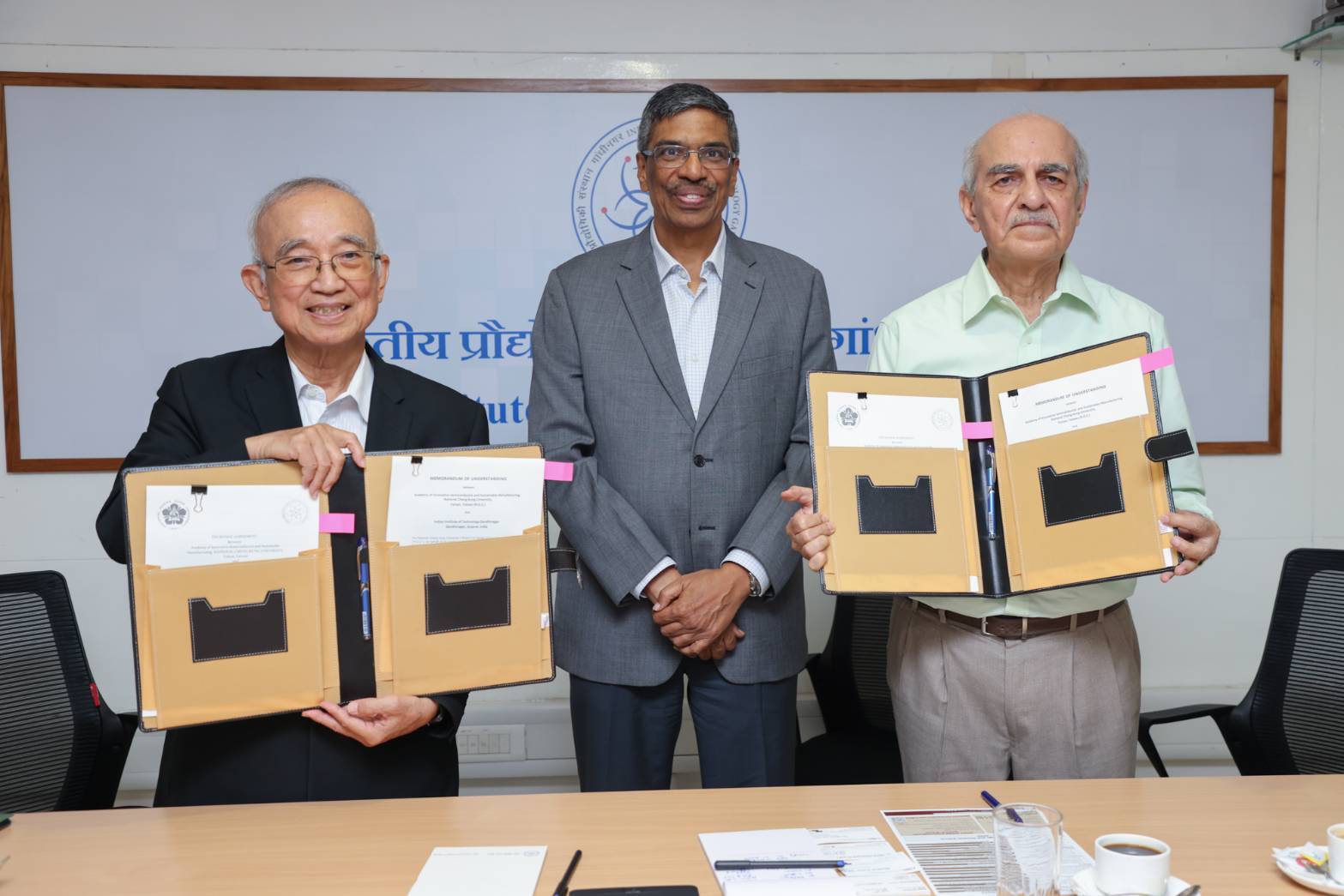
Director Dr. Rajat Moona , Director of IIT Gandhinagar (center) witnesses the signing of the memorandum of understanding and student.
IIT Gandhinagar established a Taiwan Education Center in 2023, coordinating with the Education Division of the Taipei Economic and Cultural Center in India. Mandarin teacher William Gao participated in the signing and exchanges. Mr. Gao noted the high interest among students in learning Mandarin, driven by semiconductor technology’s critical role, fostering closer ties with Taiwan through cultural and educational exchanges.
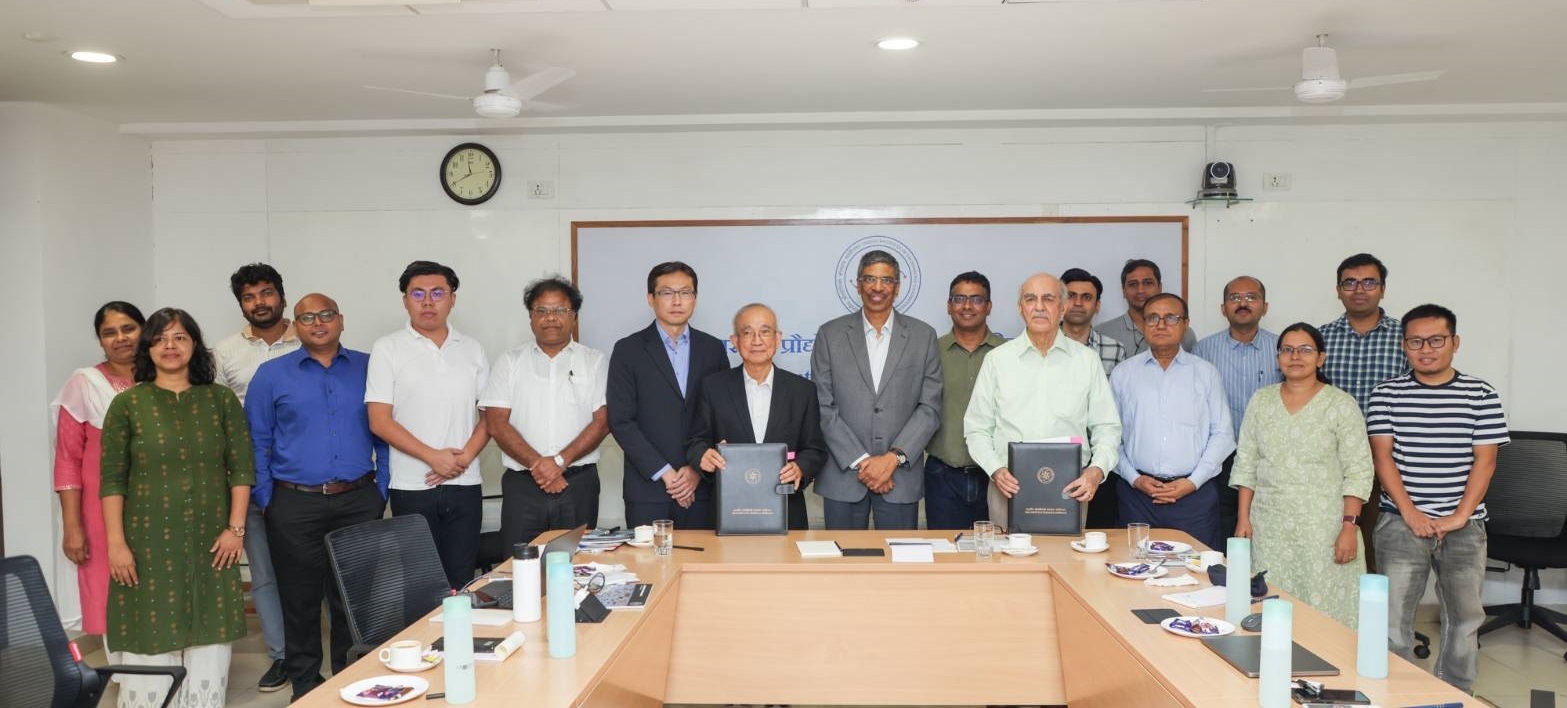
IIT Gandhinagar and the NCKU AISSM delegation celebrated the establishment of their semiconductor partnership.
On this trip, the NCKU delegation also met with the Taipei Economic and Cultural Center and the Taipei World Trade Center in Chennai. Director-General Richard Chen suggested attracting Indian students to Taiwan through bilateral meetings and academic exchanges, leveraging Taiwan’s leading position in the semiconductor industry. Scholarships and internships provided by Taiwanese companies could further attract top talent to pursue semiconductor-related degrees in Taiwan.
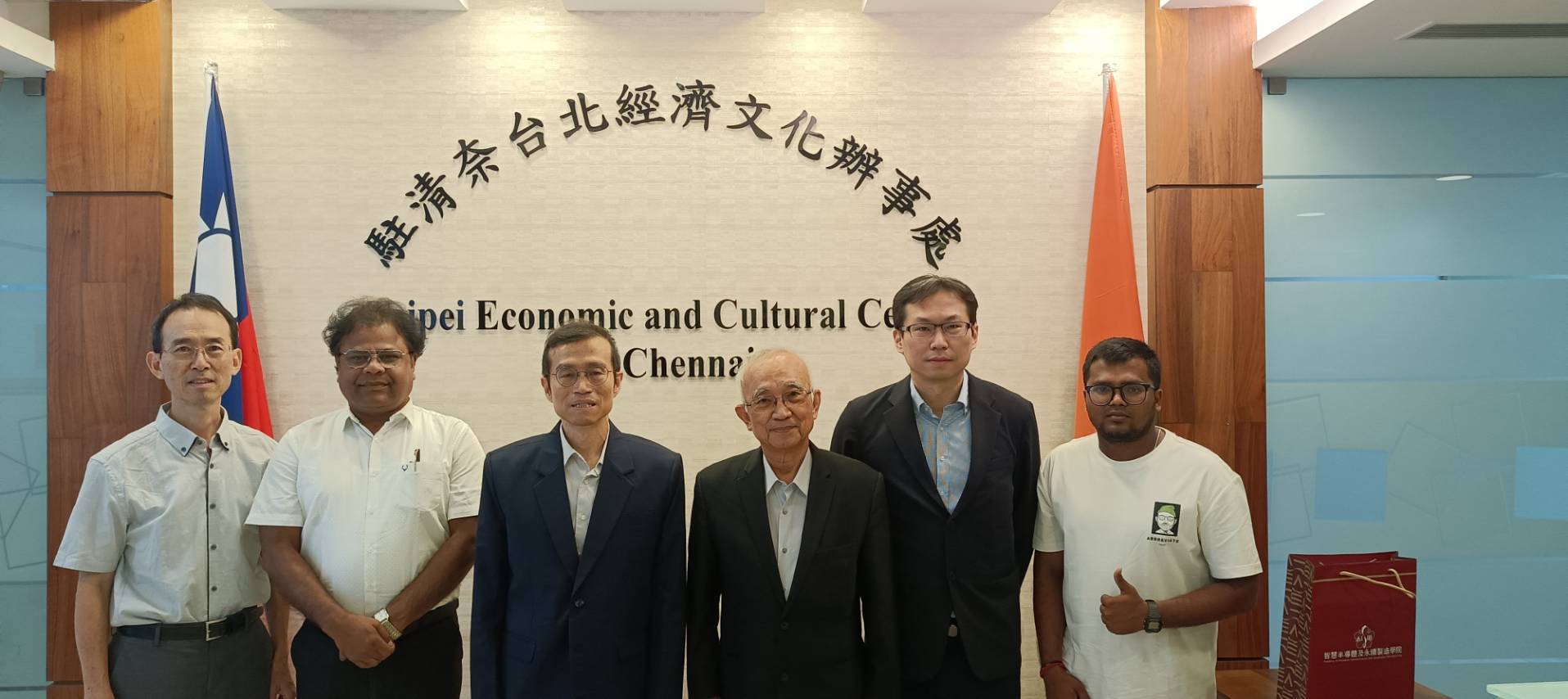
Director-General Richard Chen (3rd from the left) of the Taipei Economic and Cultural Center in Chennai meets with the NCKU delegation.
Dean Su mentioned that companies like Foxconn, UMC, and Delta Electronics have established factories in India, creating a demand for semiconductor talent. NCKU offers comprehensive semiconductor process equipment for internships and experiments, with partner schools interested in sending students for short-term training (3 to 6 months).
Regarding the current number of Indian students, NCKU hosts 70 Indian students, representing 0.3% of the total student population. The NCKU AISSM, established in 2021, enrolled master’s and doctoral students in 2022, with 16 Indian students, comprising 6% of the academy’s total student population. The agreements with IIT Madras and IIT Gandhinagar are expected to significantly enhance semiconductor talent development between Taiwan and India.
Provider:
NCKU News Center
Date:
2024-10-24



